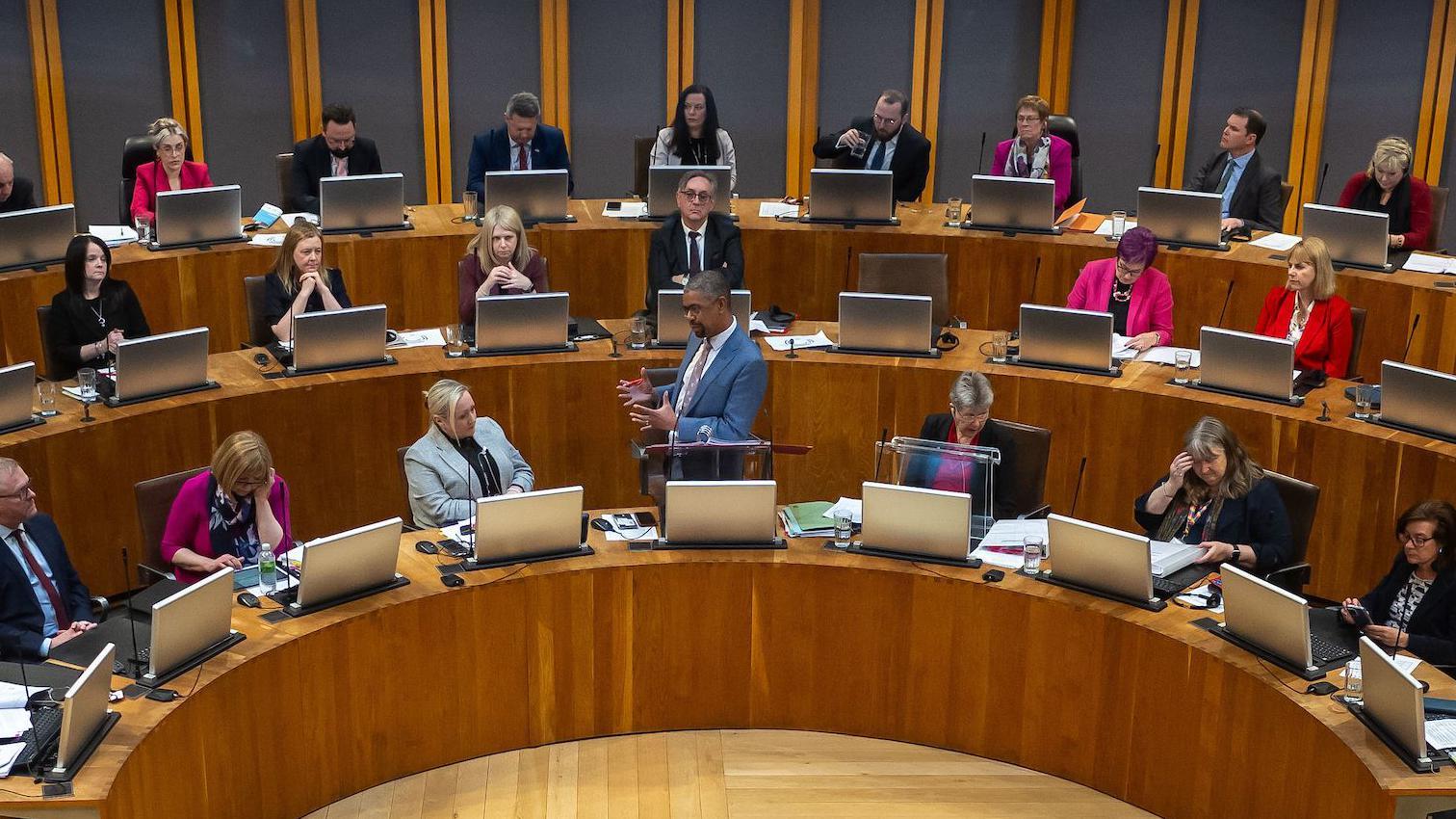
WELSH MINISTERS TRY TO STOP BAN ON POLITICIANS LYING
The Welsh government will try to scrap a proposed ban on politicians lying in a vote on Tuesday.
If passed, a bill currently going through the Senedd will make it an offence to lie in Welsh politics, banning anyone found guilty from being a Member of the Senedd.
The offence, proposed by Plaid Cymru's Adam Price, was added to the bill last May with the help of Labour politician Lee Waters, despite the opposition of his own party's chief legal adviser.
Counsel General Mick Antoniw has warned the law could "do more harm than good" but Mr Waters and Mr Price say Wales would "lead the world" if it was passed.
Mr Antoniw will table an amendment to remove the offence of deception from his draft legislation.
With Labour holding exactly half of the seats in the 60-member Welsh Parliament, and with one Labour MS backing the law publicly, it is not clear if ministers have the votes to scrap the offence.
The government generally needs the support or absence of one opposition politician to get votes through the Welsh Parliament.
Plaid Cymru, the Conservatives and Welsh Liberal Democrat Jane Dodds are expected to back the deception law on Tuesday.
It is expected the government is planning to operate a whip as normal, where it instructs Labour members how to vote. Mr Waters has not said how he will vote.
If any of Tuesday's votes tied, it is also expected that the Senedd's presiding officer would vote down the amendment.
Under the law any politician would have 14 days to retract any false statement made.
If successfully prosecuted a person would be banned from being a Member or the Senedd or a candidate for election for four years.
The deception legislation was added to a wider bill on changes to elections after Mr Waters abstained in a committee meeting last Month.
The law includes plans to pilot automatic registration of voters, and to try to improve diversity in the Senedd and councils.
A Labour source told BBC Wales they expected the law to have to be scrapped in its entirety if the deception offence could not be removed.
The source said the deception law was "barking".
In a letter to Senedd members, Mr Antoniw said the proposed new crime "presents a radical departure from modern constitutional norms in this country that has the potential to do much more harm than good".
"I do not overstate my concerns by highlighting that it is the kind of criminal law that was used as a tool to suppress dissent in the distant past in this country [and] is still used for that purpose in other countries today," he wrote.
"I worry that the good intentions that lie behind this provision could be abused in that way again here under different political circumstances."
He said there had been no consultation with the police or the justice system and it was "irresponsible to legislate on an issue with no understanding of the resource implications".
On Monday the Senedd's standards commissioner Douglas Bain agreed with the government's stance, arguing that false statements could be better dealt with through the existing Senedd process rather than the criminal courts.
In a response on the Nation.Cymru website, Mr Waters and Mr Price said they did not want to make "bad law".
They denied it would impose "any new limitations on Senedd members’ freedom of expression".
"It deliberately sets a high bar for conviction – that someone has wilfully and knowingly stated something that they purport to be a statement of fact, and that could not reasonably be inferred to be a statement of opinion, belief or future intention."
They said trivial breaches are unlikely to be prosecuted.
Mr Price has proposed further amendments to the law which would require a review of the law, and make it an offence for a person to make a complaint that is vexatious, or known to be false, trivial or frivolous.
2024-07-02T12:56:27Z dg43tfdfdgfd